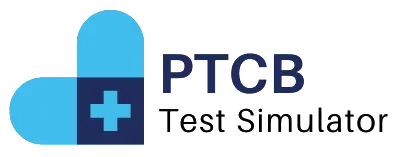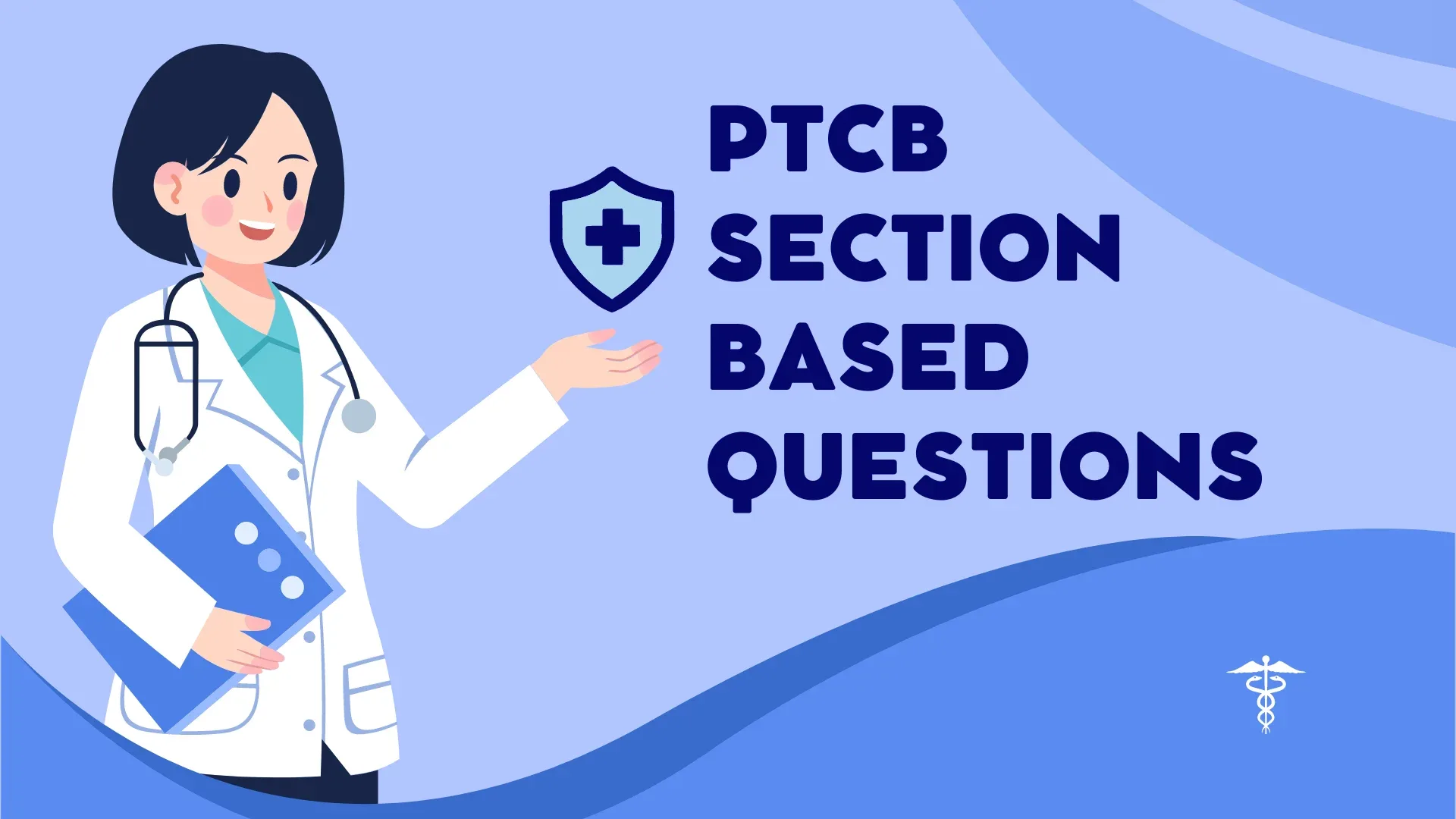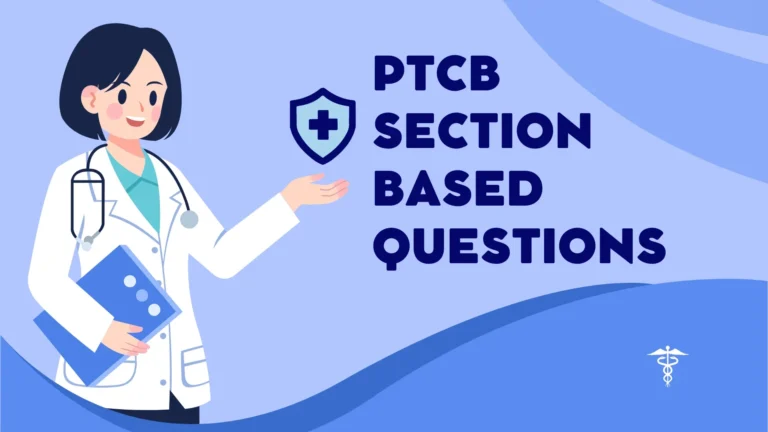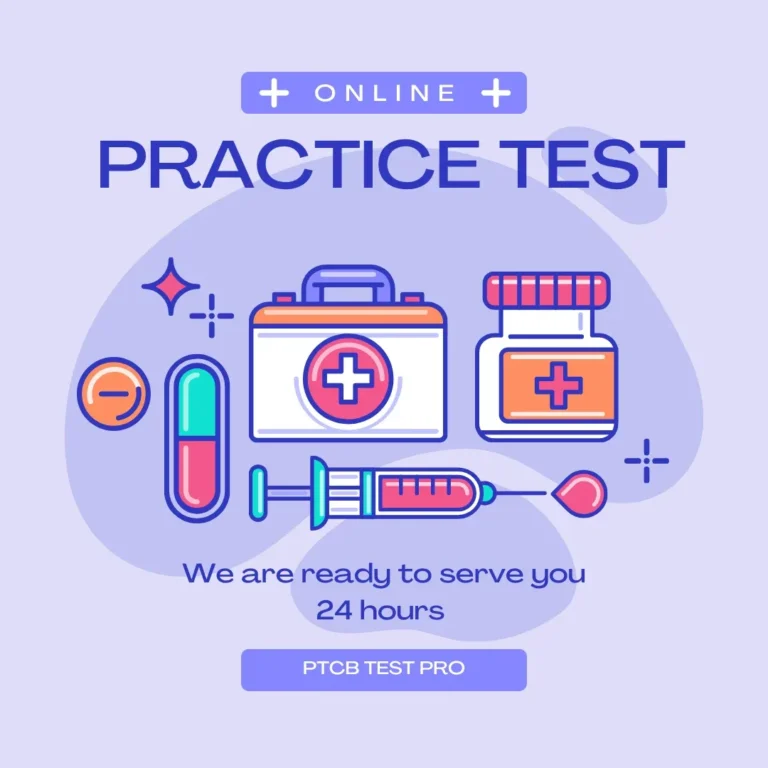Diseases and Conditions Quiz
The Pharmacy Technician Certification Board (PTCB) exam assesses a pharmacy technician’s knowledge across various topics, including diseases and conditions. Pharmacy technicians play a crucial role in assisting pharmacists, preparing medications, and educating patients. To excel in the PTCB exam, understanding the most common diseases and conditions is vital. This article presents a PTCB Exam Sample focused on diseases and conditions. Through this quiz format, you can test your knowledge and identify areas for further study.
Try More Practice Tests
Key Diseases and Conditions for Pharmacy Technicians
Pharmacy technicians must be familiar with a range of diseases and conditions to understand the medications used to treat them. This knowledge aids in proper medication dispensing and patient counseling. Here’s a brief overview of some common diseases and conditions that are relevant to the PTCB exam.
Cardiovascular Diseases
Cardiovascular diseases (CVDs) are among the leading causes of morbidity and mortality worldwide. Pharmacy technicians should understand common CVDs such as hypertension, heart failure, and coronary artery disease.
Diabetes
Diabetes is a chronic condition characterized by high blood glucose levels. It can lead to complications like neuropathy, retinopathy, and cardiovascular issues. Understanding diabetes is crucial for pharmacy technicians, as many medications are used to manage this condition.
Respiratory Conditions
Respiratory conditions include asthma, chronic obstructive pulmonary disease (COPD), and bronchitis. Pharmacy technicians should understand the medications used to manage these conditions, such as bronchodilators and corticosteroids.
Gastrointestinal Disorders
Common gastrointestinal disorders include gastroesophageal reflux disease (GERD), peptic ulcers, and inflammatory bowel disease (IBD). Pharmacy technicians should know the medications used to treat these conditions, like proton pump inhibitors (PPIs) and antacids.
Mental Health Conditions
Mental health conditions encompass a wide range of disorders, including depression, anxiety, and bipolar disorder. Pharmacy technicians should be familiar with common medications used in their treatment, such as selective serotonin reuptake inhibitors (SSRIs) and benzodiazepines.
Infectious Diseases
Infectious diseases can be caused by bacteria, viruses, fungi, or parasites. Pharmacy technicians should understand the different classes of antibiotics, antivirals, and antifungals used to treat these infections.
PTCB Exam Sample: Diseases and Conditions Quiz
Here is a PTCB Exam Sample focused on diseases and conditions. Use this quiz to test your knowledge and assess your readiness for the PTCB exam.
Question 1: Diabetes Management
Which of the following medications is commonly used to manage type 2 diabetes? A) Metformin B) Lisinopril C) Atorvastatin D) Sertraline
Answer: A) Metformin
Explanation: Metformin is an oral medication used to manage type 2 diabetes. It helps reduce blood glucose levels by decreasing glucose production in the liver and improving insulin sensitivity.
Question 2: Treatment for Hypertension
Which class of medications is commonly used to treat high blood pressure? A) Angiotensin-converting enzyme (ACE) inhibitors B) Proton pump inhibitors (PPIs) C) Antipsychotics D) Benzodiazepines
Answer: A) Angiotensin-converting enzyme (ACE) inhibitors
Explanation: ACE inhibitors, such as lisinopril and enalapril, are commonly prescribed to treat hypertension. They work by relaxing blood vessels and reducing blood pressure.
Question 3: Respiratory Conditions
Which medication is used to treat asthma by opening the airways? A) Albuterol B) Omeprazole C) Metformin D) Amlodipine
Answer: A) Albuterol
Explanation: Albuterol is a bronchodilator used to treat asthma and other respiratory conditions. It works by relaxing the muscles around the airways, making it easier to breathe.
Question 4: Gastrointestinal Disorders
Which medication is commonly used to treat gastroesophageal reflux disease (GERD)? A) Omeprazole B) Metformin C) Lisinopril D) Fluoxetine
Answer: A) Omeprazole
Explanation: Omeprazole is a proton pump inhibitor (PPI) used to reduce stomach acid and treat conditions like GERD and peptic ulcers.
Question 5: Mental Health Conditions
Which class of medications is commonly prescribed for depression? A) Selective serotonin reuptake inhibitors (SSRIs) B) ACE inhibitors C) Statins D) Antihistamines
Answer: A) Selective serotonin reuptake inhibitors (SSRIs)
Explanation: SSRIs, such as fluoxetine and sertraline, are commonly prescribed to treat depression and other mental health conditions. They work by increasing the levels of serotonin in the brain.
Question 6: Infectious Diseases
Which class of medications is used to treat bacterial infections? A) Antibiotics B) Antivirals C) Antifungals D) Antihistamines
Answer: A) Antibiotics
Explanation: Antibiotics are medications used to treat bacterial infections. Pharmacy technicians should be familiar with the different classes of antibiotics and their specific uses.
Tips for Preparing for the PTCB Exam
To successfully prepare for the PTCB exam, especially the section on diseases and conditions, consider these tips:
- Study Drug Classes: Understand the common drug classes and their uses in treating various diseases and conditions. This knowledge is fundamental for the PTCB Exam Sample.
- Create Flashcards: Develop flashcards with disease names on one side and the common medications used to treat them on the other. This helps reinforce your knowledge and improve recall during the PTCB Exam Sample.
- Practice with Quizzes: Regularly complete quizzes to test your knowledge of diseases and conditions. This helps identify areas where you might need further study.
- Join Study Groups: Consider joining study groups or online forums to discuss diseases, conditions, and their treatments with other pharmacy technician candidates.
- Consult with Pharmacists: If possible, seek guidance from pharmacists or experienced pharmacy technicians to gain deeper insights into medication use and patient counseling.
By following these tips and practicing with the PTCB Exam Sample provided in this article, you’ll build a strong foundation in understanding diseases and conditions, which will help you succeed in the PTCB exam and your career as a pharmacy technician.
Conclusion
Understanding diseases and conditions is a crucial aspect of the PTCB exam and pharmacy practice. Pharmacy technicians need to be knowledgeable about common diseases and the medications used to treat them. This PTCB Exam Sample, along with the explanations provided, offers a comprehensive approach to learning about diseases and conditions. By focusing on these topics and practicing regularly, you’ll increase your chances of success in the Pharmacy Technician Certification Board exam and be better prepared for your role as a pharmacy technician. Good luck with your studies and your journey toward certification!



